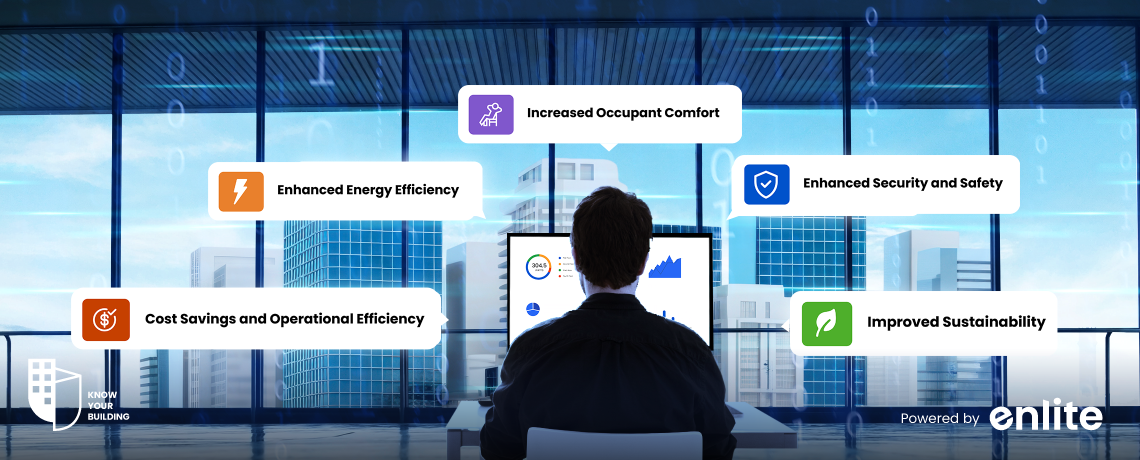Introduction
In the contemporary landscape of construction and infrastructure, smart buildings have revolutionized the way we perceive and manage built environments. A pivotal component of these intelligent structures is the implementation of sophisticated monitoring systems that offer a myriad of advantages. Understanding the essence and significance of a smart building monitoring system lays the foundation for unlocking its abundant benefits.
Understanding Smart Building Monitoring Systems
A smart building monitoring system integrates various sensors, devices, and software to collect, analyze, and interpret data concerning a building’s performance, utilities, and environment. These systems are designed to optimize efficiency, enhance security, and improve overall functionality.
Importance of Efficient Building Monitoring
Efficient monitoring in a building is crucial for several reasons. It enables the proactive identification of potential issues, aids in resource optimization, enhances safety protocols, and contributes significantly to sustainability efforts.
Now let’s take a look at the top 5 benefits of a Smart Building Monitoring System.
1. Enhanced Energy Efficiency
Optimizing Energy Consumption
One of the primary advantages of a smart building monitoring system is its ability to optimize energy consumption. Through real-time data analysis, these systems identify energy usage patterns, allowing for the fine-tuning of systems like HVAC, lighting, and other utilities to operate more efficiently.
Monitoring and Controlling Energy Usage
Smart monitoring systems offer precise insights into energy usage trends, enabling building managers to make informed decisions. By leveraging this data, adjustments can be made to minimize waste, improve efficiency, and ultimately reduce energy costs, contributing positively to environmental conservation.
2. Improved Sustainability
Environmental Impact of Smart Building Systems
Smart building monitoring systems play a pivotal role in promoting sustainability. By monitoring resource consumption and implementing energy-saving measures, these systems significantly reduce a building’s carbon footprint, contributing to broader environmental conservation efforts.
Implementing Sustainable Practices
The data acquired from monitoring systems aids in the implementation of sustainable practices within the building infrastructure. This includes the use of renewable energy sources, waste reduction strategies, and efficient water management, all of which contribute to a greener and more sustainable environment.
3. Enhanced Security and Safety
Real-time Monitoring for Safety Hazards
Smart monitoring systems provide real-time data on various safety parameters within a building. From fire detection to air quality monitoring, these systems offer a proactive approach to identifying and mitigating potential safety hazards.
Integrating Security Features
In addition to safety, smart building monitoring systems integrate security features. These can include surveillance cameras, access control systems, and intrusion detection, enhancing the overall security of the building and its occupants.
4. Cost Savings and Operational Efficiency
Financial Benefits of Smart Monitoring
Implementing a smart building monitoring system often leads to substantial cost savings in the long run. By optimizing energy usage, reducing maintenance expenses through predictive analysis, and extending the lifespan of equipment, these systems prove to be financially advantageous.
Streamlining Operations and Maintenance
The ability to monitor equipment performance and predict maintenance needs allows for better planning and resource allocation. This minimizes downtime, enhances productivity, and streamlines overall operations within the building.
5. Increased Comfort and Occupant Satisfaction
Creating an Ideal Indoor Environment
Smart monitoring systems contribute to creating an optimal indoor environment by maintaining comfortable temperatures, controlling humidity, and ensuring good air quality. This, in turn, enhances the overall comfort and well-being of the building’s occupants.
Impact on Occupant Productivity and Well-being
A comfortable and conducive environment positively impacts occupant productivity, health, and satisfaction. Smart building monitoring systems play a pivotal role in fostering such environments, leading to happier and more productive occupants.














